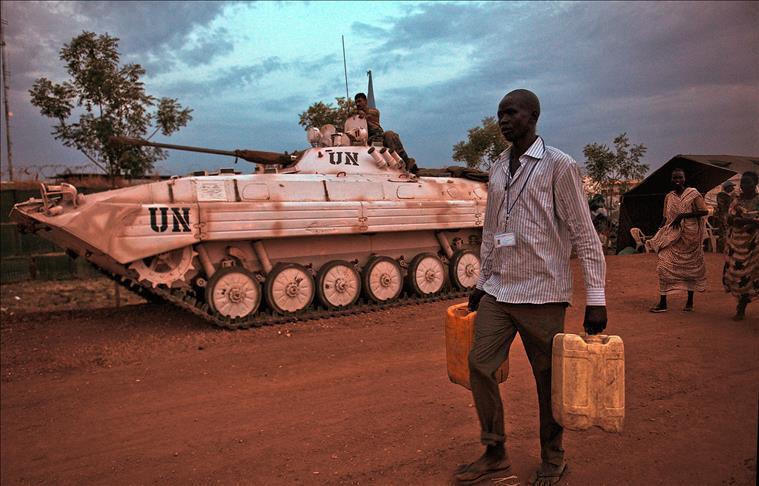South Sudan moves provincial capital after rebel takeover
"Al-Rank's infrastructure is equipped to host state institutions," Jiben added, stressing that once the government regained control of Malakal, the city would go back to being the state's capital.

JUBA
South Sudanese authorities on Wednesday announced plans to temporarily move Upper Nile State's provincial capital to the city of Al-Rank after rebel forces loyal to sacked vice president Reik Machar captured Malakal, the troubled state's current capital.
"Relocating the provincial capital to Al-Rank is only a temporary arrangement until security conditions return to normal," Upper Nile Information Minister Philip Jiben told Anadolu Agency on Wednesday.
"Al-Rank's infrastructure is equipped to host state institutions," Jiben added, stressing that once the government regained control of Malakal, the city would go back to being the state's capital.
On Friday, the government announced that pro-Machar militants had seized Malakal following days of fighting with government troops.
The Wednesday announcement was met with criticism from civil society groups in Al-Rank, who viewed the move as a "threat" to the oil-rich city.
"The decision will bring Al-Rank once more to the forefront of events due to its geo-strategic position," read a joint statement by five Upper Nile civil society organizations.
"It is also a dangerous threat to the city in general and its oil-producing districts in particular," the statement added.
"The mismanagement of the Malakal crisis by the government has led to the killing and displacement of large numbers of residents, which is why Al-Rank residents have lost trust in the administration," the statement added.
South Sudan has been shaken by violence since mid-December, when President Salva Kiir accused Machar of attempting to overthrow his regime.
The conflict has already claimed more than 10,000 lives, while the UN estimates that some 3.7 million people in South Sudan are now "severely food insecure" and more than 820,000 have been displaced.
Following a month-long IGAD-sponsored first round talks in Addis Ababa, the two warring rivals signed a cessation of hostilities agreement in January.
Pro-Machar rebels want Kiir to step down to allow the formation of a transitional government.
Juba, however, maintains that Kiir was elected by the South Sudanese people, saying his term would only end in 2015.
By Atem Simon
englishnews@aa.com.tr
Anadolu Agency website contains only a portion of the news stories offered to subscribers in the AA News Broadcasting System (HAS), and in summarized form. Please contact us for subscription options.

